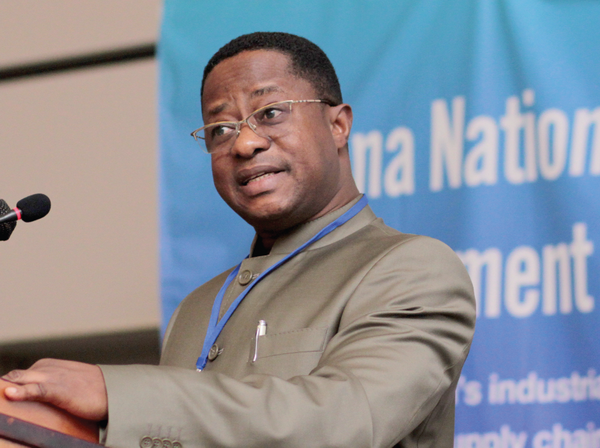An operational audit of all mining companies is set to be rolled out by the Ministry of Lands and Natural Resources in the next three weeks to ensure that mining entities pay the appropriate royalties and taxes to the state.
Addressing a press conference in Accra on Thursday, the Minister of Lands and Natural Resources (MLNR), Mr John Peter Amewu, said: “The mining sector is an important contributor to the economy of this country but we have been short-changed for a long time now.”
The press conference, organised jointly by the ministry and the Tianyuan Manganese Industry (TMI), a Chinese company, was to discuss the way forward to boost the economic potential of the Ghana Manganese Company (GMC),
“As a government, we feel strongly that our royalties, taxes and rents have not been properly recorded and accounted for, so we are going to do an audit of all companies that engage in mining to be able to determine the real picture on the ground to be able to reverse this ugly trend,” Mr Amewu stressed.
He said the government had almost concluded discussions with the Chamber of Mines to begin the auditing process and urged all mining companies to open up and be transparent in their activities when the process began.
Diligence
The TMI, a subsidiary of Consolidated Minerals Limited (CML), completed the transactions for a take-over of the GMC in May last year.
At the time of the take-over, the GMC, that had existed for more than 100 years, produced between one million and 1.5 million tonnes of manganese ore annually.
Barely a year after the take-over, the TMI increased the annual output of the company to about three million tonnes, representing a 100 per cent increment.
While lauding the management for turning around the economic fortunes of the company, Mr Amewu urged it to operate within the legal and regulatory regimes of the country.
He reiterated the fact that the government would do due diligence to sanitise the mining sector to ensure that revenue losses and corruption in the management of our mineral resources were nipped in the bud.
Ban
As part of measures to sanitise the mining sector, the government placed a six-month ban on small-scale mining as a measure to curb the activities of illegal miners.
After the expiration of the initial ban in October 2017, the moratorium on small-scale mining was extended by three months, taking the period of the ban to the end of January this year.
A national anti-galamsey task force, comprising the military and the police, was deployed to clamp down on illegal miners.
Responding to a question on when the ban on small-scale mining would be lifted, Mr Amewu said due diligence was being done, in consultation with key stakeholders, to ensure that the right decision was taken.
“There is still a long way to go because our water bodies are still not clean. The Cabinet is so interested in the processes to bring sanity to the mining sector. There is also a ministerial committee in place in that regard, so we are working with all stakeholders, including the association of small-scale miners.
“A definite decision that will be in the interest of the country will be announced soon,” he added.
MMIP
Mr Amewu also announced that President Nana Addo Dankwa Akufo-Addo would, next Tuesday, February 9, launch the Multi-sectoral Mining Integrated Programme (MMIP) to provide a road map for sustainable mining in the country.
He said the project would include the use of innovative technologies such as drones and satellites to facilitate the monitoring of activities at mining sites.
The five-year project, he said, would be treated as a project that would involve all stakeholders.
Opportunities with TMI
The Chief Executive Officer (CEO) of the CML, Mr Oleg V. Sheyko, said the gains made by TMI in the space of one year could be attributed to innovative production mechanisms and diligent investment.
He added that the company had plans to increase its production to six million tonnes in the short term and 12 million tonnes in the long term.
He further said TMI had put in place processes to employ 1,000 locals, beginning this year, as part of its strategies to expand its frontiers.
"Currently, we have a workforce of about 1,700 but we want to increase it to 2,700,” he noted.

